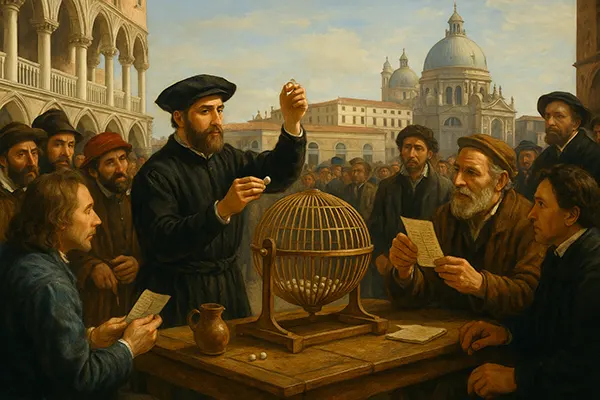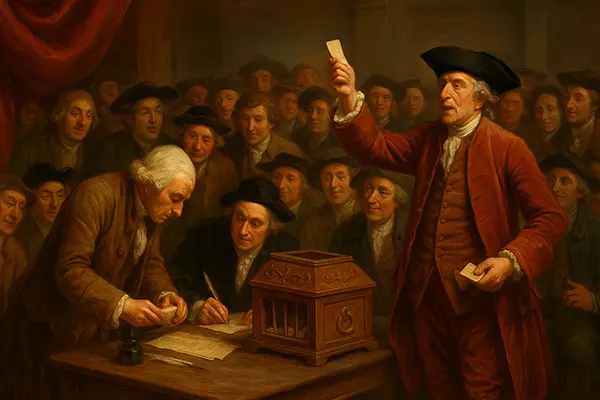
Historical Lotteries: How Lot Drawing Helped Build Venice and Finance the American War of Independence
Lotteries, long before they became tools for entertainment, served as practical financial instruments for states and societies. In ancient and mediaeval times, drawing lots was often a mechanism for distributing resources, property, and responsibilities. More remarkably, it played a vital role in the development of some of the world’s most iconic civilisations and conflicts. Two notable examples include the funding of Venice’s infrastructure and the American War of Independence.
The Role of Lotteries in the Urban Development of Venice
In Renaissance-era Venice, lotteries were not simply games of chance—they were financial strategies to support public infrastructure. During the 15th and 16th centuries, the Republic of Venice faced increasing challenges in managing urban growth and maintaining its sophisticated canal system. To fund these civic projects without imposing heavier taxes, the Venetian government devised public lotteries where citizens could purchase numbered tickets for a chance to win valuable items or privileges.
This mechanism allowed the state to raise funds quickly and with the public’s voluntary participation. Lottery funds were channelled into the maintenance of canals, construction of public buildings, and even artistic commissions that adorned Venice’s palaces and churches. In doing so, Venice not only preserved its architectural identity but also maintained civic pride and unity.
The Venetian lottery model was transparent and popular. The draw typically took place in public squares, with a high level of administrative control to ensure fairness. This public visibility built trust and strengthened social engagement with civic funding efforts.
Drawing Lots for Civic Responsibility in Venice
Beyond financial goals, lotteries in Venice were also used to determine political responsibilities. The selection of public officials, such as members of the Great Council, was often conducted through a lottery process known as the “ballotta.” This ensured that appointments were perceived as impartial and less prone to corruption.
By relying on chance, the Venetian system reduced political rivalries and power consolidation among elite families. It also served as a mechanism to integrate diverse classes into governance while maintaining the Republic’s stability. This unique blend of lottery and democracy made Venice one of the most innovative political laboratories of its era.
Such civic lotteries underline how randomness, when well-managed, can serve as an engine for fairness and efficiency in complex societies. In Venice, they ensured inclusiveness and transparency—principles still valued in modern administrative practices.
Lotteries as a Funding Mechanism in the American War of Independence
Across the Atlantic, during the 18th century, lotteries played a pivotal role in financing the American colonies’ push for independence from Britain. With limited taxation authority and scarce financial reserves, the Continental Congress turned to lotteries to support the revolutionary cause.
In 1776, the United States authorised its first national lottery to raise money for the war. Individual states also launched their own lotteries to fund supplies, pay soldiers, and maintain infrastructure. These public lotteries were not optional luxuries—they were lifelines for a fledgling nation fighting for survival.
Ticket sales were promoted widely, and prizes often included land grants or cash backed by expected future revenues. Despite some logistical challenges and fraud concerns, the lotteries generated substantial funds and broadened public support for the war effort.
How the Public Perceived Revolutionary Lotteries
The use of lotteries during the revolution was met with a mixture of pragmatism and patriotic duty. Many colonists viewed ticket purchases not only as a gamble but as a form of investment in the nation’s freedom. This dual perception helped bridge financial necessity with ideological commitment.
However, lottery fraud and poor management in some states eventually led to public scepticism. Oversight varied, and in some cases, prizes were never paid or the draw results were disputed. These issues prompted future reforms in how public lotteries were administered post-independence.
Nevertheless, the early success of these lotteries demonstrated their utility during national emergencies. They helped decentralised governments mobilise resources rapidly and engage citizens in the political process through financial participation.

The Evolution of Lotteries from Public Financing to Regulated Entertainment
By the 19th century, the role of lotteries began to shift. While their roots were in public funding, scandals and corruption prompted many governments to ban or severely regulate them. In the United States, the 1890s marked a turning point when the federal government outlawed interstate lottery ticket sales due to growing concerns over integrity and fraud.
In Europe, some states retained tightly controlled lotteries to support welfare initiatives, arts, and education. Notably, national lotteries in France, Spain, and the United Kingdom evolved under strict regulatory frameworks to ensure transparency and societal benefit.
Today, state-run lotteries function under clear legal mandates and are audited rigorously. Their proceeds often support healthcare, education, and cultural projects, continuing the legacy of public benefit established centuries ago—even if the context has shifted from revolution and reconstruction to social welfare and entertainment.
Lessons from Historical Lotteries
The historical use of lotteries in Venice and during the American War of Independence shows their adaptability and effectiveness as financial tools. These examples underline the balance between chance and governance—how randomness can be harnessed for structured, impactful purposes.
Moreover, they reveal that public trust and transparency are crucial. When administered fairly and with clear purpose, lotteries can inspire civic unity and channel individual contributions into collective good. The success of Venice’s infrastructure and the American fight for independence both hinged, in part, on this principle.
In modern times, while the objectives of lotteries have evolved, their societal role remains significant. Understanding their roots helps to appreciate their broader historical and cultural impact.
